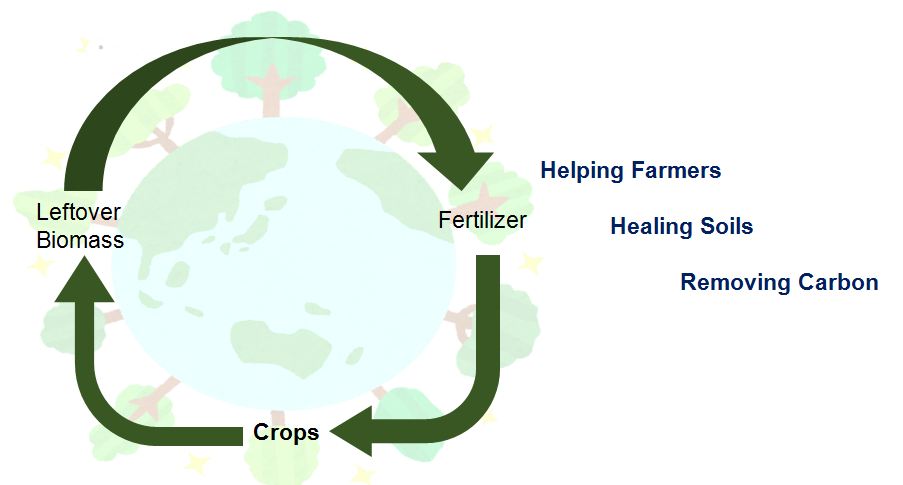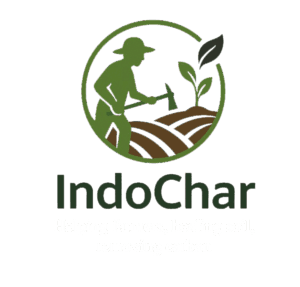Circular Economy
We learned that biochar is helpful for farming because it can improve the quality of the soil. It helps the soil keep more water and reduces the need for chemical fertilizers. This would be beneficial for smallholder farmers who usually burn leftover crops in the fields after harvest. Instead of burning, they can turn the crop leftovers into biochar and put it back into the soil. This process will introduce “zero waste” farming, where nothing is wasted, and it helps make farming more sustainable for the future.
Biochar can store carbon: adding it to the soil increases the carbon content in the soil and can be valuable for farming, because carbon is a key part of what plants are made of.
In conclusion, making and using biochar is a smart solution for farming today. It uses farm leftovers to make a kind of natural fertilizer, stops people from burning waste, and helps trap carbon in the soil. This is a great example of the circular economy of farming process, how farming can support the environment and use resources more wisely.

